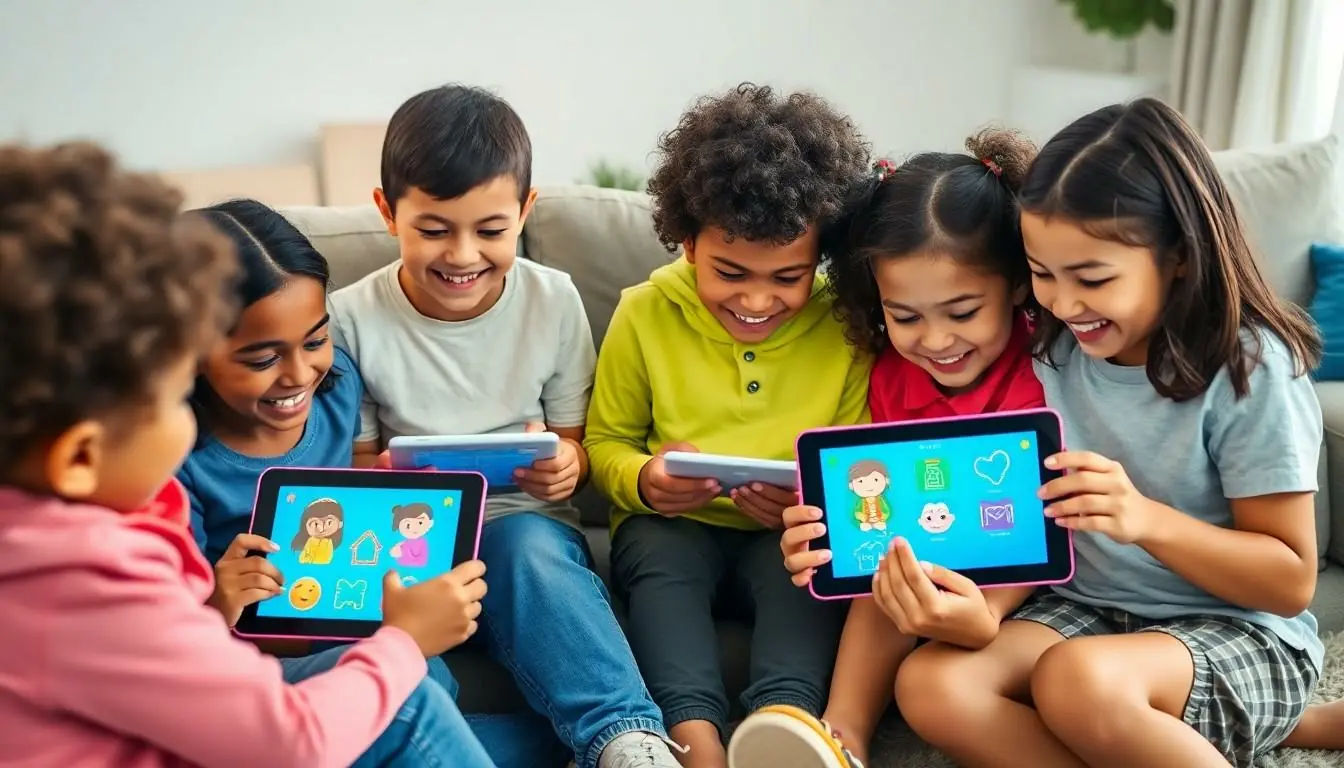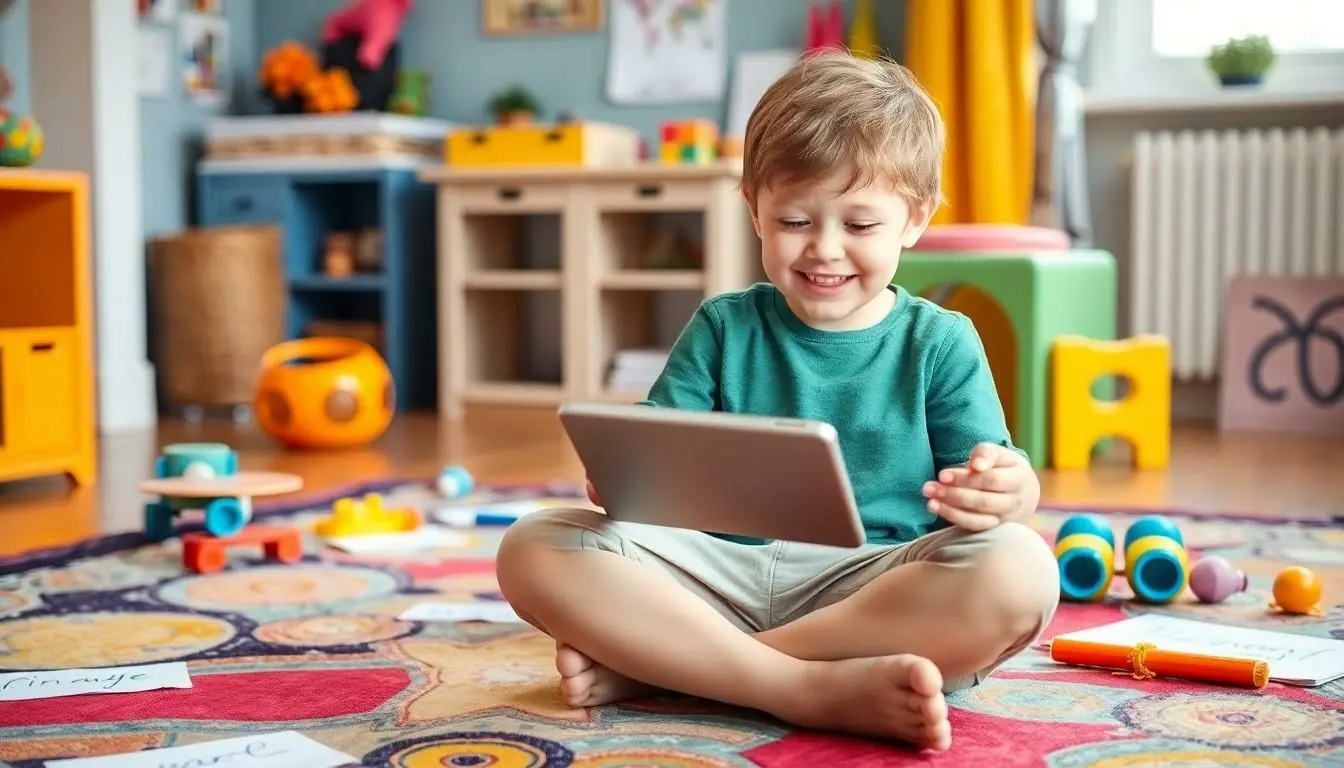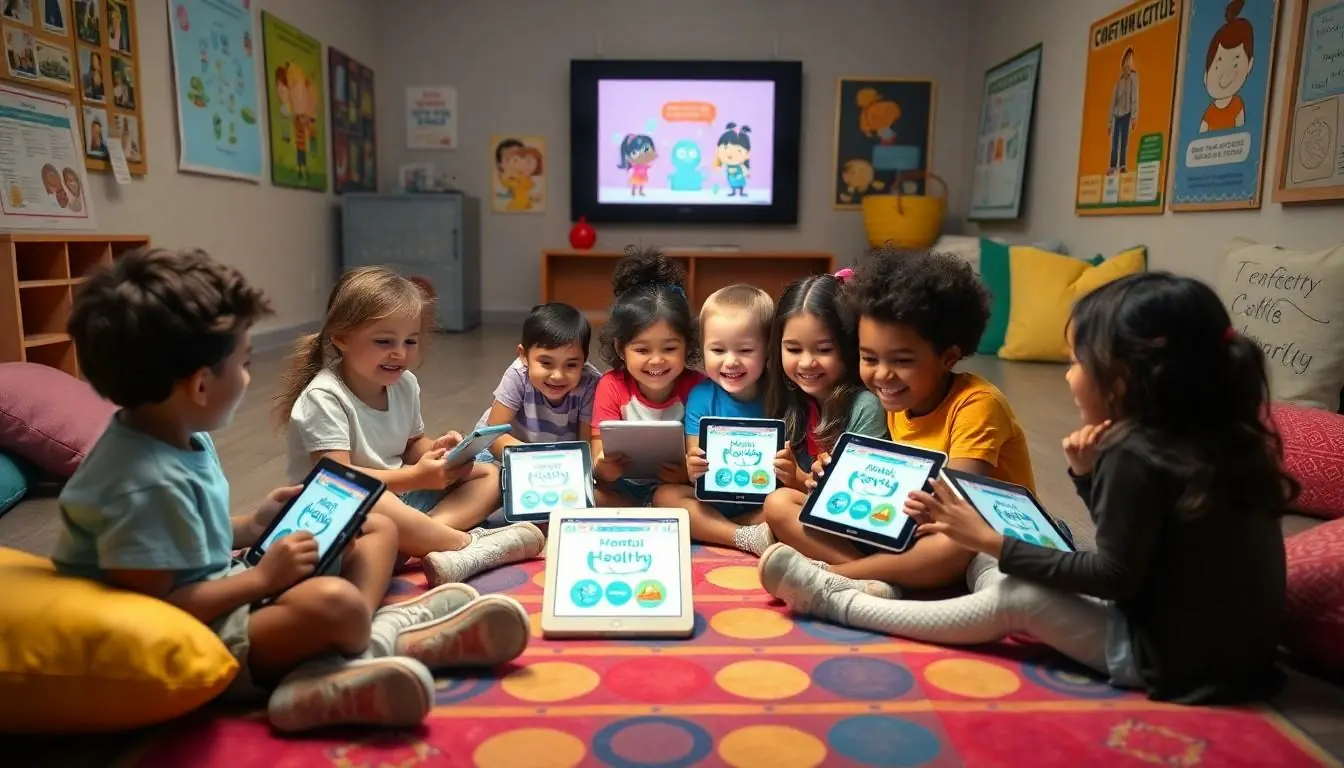In a world where kids juggle school, friends, and the occasional existential crisis, mental health apps have swooped in like superheroes. These digital sidekicks offer fun and engaging ways for children to explore their feelings and learn coping strategies. Who knew emotional well-being could come with colorful graphics and interactive games?
Table of Contents
ToggleOverview of Mental Health Apps for Kids
Mental health apps for kids serve as effective tools designed to assist children in managing their emotions. They aim to foster resilience and emotional intelligence in young users. Various apps cater to different needs, from anxiety reduction to social skills enhancement.
Features of these apps often include interactive games and engaging activities. These elements motivate children to participate actively in their mental health journey. Colorful graphics capture attention, making the experience enjoyable and relatable.
Examples of popular mental health apps include Calm Kids, which provides guided breathing exercises, and Mood Meter, which helps children identify their emotions. These apps focus on skill-building and emotional expression, encouraging users to articulate their feelings.
Research indicates that interactive platforms can significantly impact children’s mental health. Studies show that kids using mental health apps demonstrate improved emotional regulation and coping strategies. Such benefits help them navigate challenging situations in daily life.
Parents benefit from these resources as well. Many apps include parent guides, offering insights into their child’s emotional development. This connection promotes open communication between parents and children.
With the progressive integration of technology in daily routines, mental health apps provide a vital avenue for emotional support and development. Their contributions to children’s overall well-being reinforce the importance of mental health education from an early age.
Benefits of Mental Health Apps


Mental health apps provide numerous advantages for kids as they promote emotional well-being and development. Engaging with these apps often leads to positive outcomes in children’s mental health.
Accessibility and Convenience
Accessibility significantly enhances the likelihood of kids utilizing these tools. Kids can access mental health apps anytime and anywhere, making emotional support consistent. Many apps offer user-friendly interfaces that make navigation simple, catering specifically to children’s understanding. Parents also appreciate that these resources fit seamlessly into busy schedules. Convenience leads to more frequent engagement, which is vital in reinforcing mental health practices.
Skill Development
Skill development emerges as a primary benefit of these applications. Kids can learn essential coping strategies while playing interactive games or completing engaging activities. Apps often include exercises that help children identify emotions, express feelings, and build resilience. These practices foster emotional intelligence, equipping children with tools for managing stress and anxiety. Regular interaction with mental health apps enhances skills that kids can apply in real-life situations, ensuring long-term emotional growth.
Popular Mental Health Apps for Kids
Mental health apps designed for kids offer engaging tools that support emotional well-being. These resources provide interactive experiences that encourage children to identify and manage their feelings.
App 1: Calm Kids Features
Calm Kids offers guided breathing exercises that help children relax and focus. This app uses colorful animations and calming soundscapes to create an inviting atmosphere. Users report positive outcomes, including reduced anxiety and improved concentration. Regular use cultivates mindfulness skills, enabling kids to better manage stress in daily activities.
App 2: Mood Meter Features
Mood Meter helps children recognize and label their emotions using a color-coded scale. Through interactive activities, kids learn to express their feelings effectively. Engagement with this app enhances emotional vocabulary, fostering better communication skills. Users can track emotions over time, allowing parents to gain insights into their child’s emotional journey.
App 3: Mindfulness for Kids Features
Mindfulness for Kids incorporates playful meditation exercises tailored specifically for younger users. This app includes a variety of guided meditations and mindful activities that are both fun and educational. Children can explore different mindfulness techniques through games and stories. Studies show that regular practice can lead to increased self-awareness and emotional resilience.
Considerations for Parents
Parents should evaluate various factors when choosing mental health apps for their kids. Effectiveness and safety play vital roles in the decision-making process.
Safety and Privacy
Safety concerns include data security and privacy for children. Apps must comply with COPPA regulations, ensuring children’s personal information remains protected. Many apps provide transparency about data collection and usage. Parents should look for clear privacy policies that outline this information. Regular updates indicate that developers are committed to addressing potential vulnerabilities. Also, parental controls within the app can add an extra layer of security, allowing parents to monitor usage and content. Prioritizing apps that emphasize safety helps protect children while they explore their emotions.
Age Appropriateness
Age appropriateness significantly affects the effectiveness of mental health apps. Content designed for younger children differs from that intended for teens. Parents need to assess the developmental suitability of the app’s features and activities. Engaging visuals and simple language cater to younger audiences, while older children may benefit from more complex concepts. Many developers label their apps for specific age groups, aiding parents in finding the right fit. Evaluating user reviews and expert recommendations further enhances the selection process. Choosing age-appropriate apps supports children’s understanding and emotional growth.
Mental health apps for kids are transforming the way children engage with their emotions and develop essential coping skills. By combining fun and interactive features, these apps make emotional well-being accessible and enjoyable. They not only provide tools for managing stress and anxiety but also foster resilience and emotional intelligence.
As parents explore these resources, it’s vital to prioritize safety and age-appropriate content. Evaluating user reviews and expert recommendations can guide them in selecting the best options for their children. With the right mental health app, kids can embark on a journey of self-discovery and emotional growth, equipping them with valuable skills for a healthier future.



